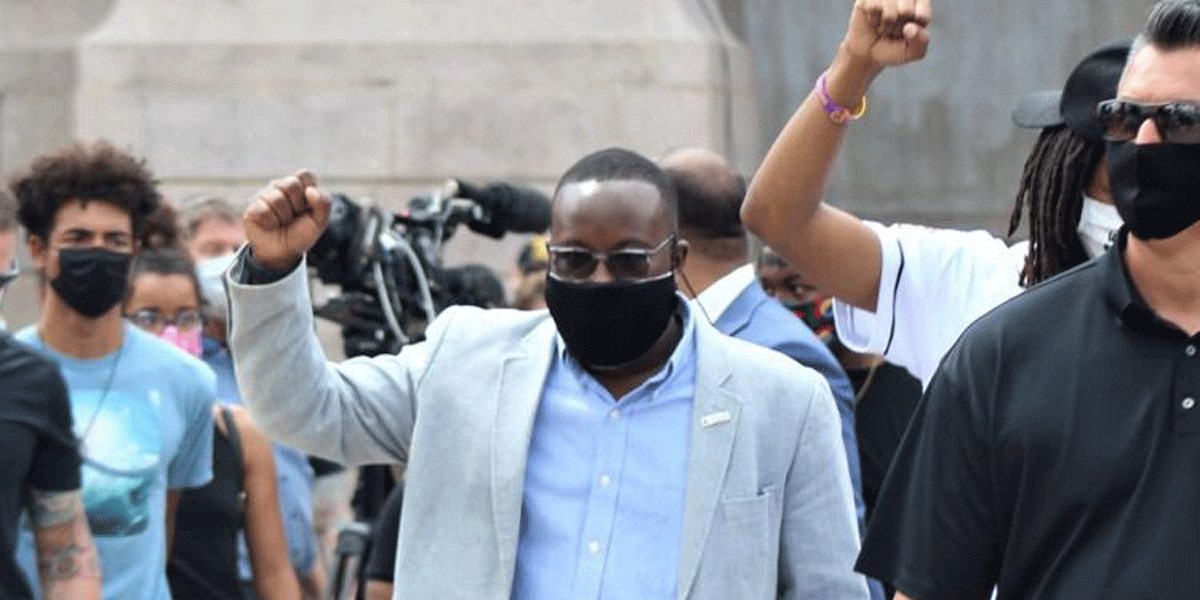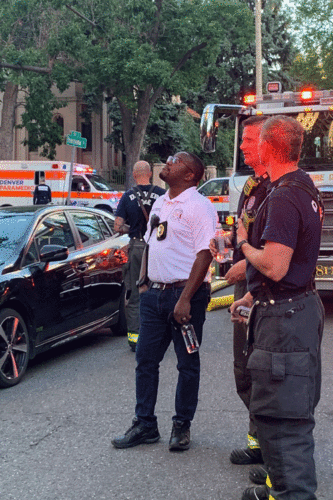
At his new job as Executive Director of Denver’s Department of Public Safety, Murphy Robinson ’06 already has a pretty hefty to-do list:
- Hire both a new sheriff and fire chief.
- Respond to daily protests of racism and police brutality.
- Reform the city’s criminal justice system.
- Manage operations in an ongoing pandemic.
Not necessarily in that order.
Robinson has led the department—overseeing the police, sheriff, and fire departments—in an interim capacity since January. In May, Mayor Michael Hancock announced that Robinson would hold the position permanently. Robinson was previously deputy mayor to Hancock and has worked in city management for Brighton and Englewood.
“I bring a different perspective to the office that I think is needed,” says Robinson, a Denver native and former police officer. “I’m eager to enact appropriate change.”
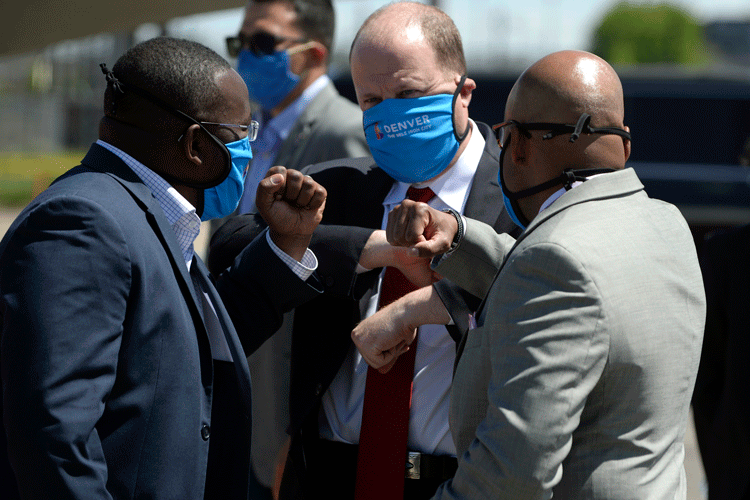
What’s needed in Denver
With a global antiracism movement underway and people in the streets calling for police reform, Robinson says his first step is to listen.
“We need to shut our mouths and open our ears,” he says. “As public safety director, I have to make sure I’m listening to our constituents about what we want the department to be and how to find a policing structure that serves all.”
He wants to earn people’s trust and collect data that point the way to new policies. Once those policies are implemented, his team will establish benchmarks to assess how they’re working.
“I want to make sure that we’re implementing changes that reduce consequences of incarceration for individuals and families …,” he said in a recent interview. “I know what it’s like to have community members who go to jail because of decisions that were made because they were trying to better themselves, but they didn’t have any other options.”
Having served as a police officer for 10 years, he believes the service is necessary to our society and that many officers are doing good work.
“If we can change the way they perform those jobs to fit the constructs of the 21st century, it will help everyone, but we can’t throw out the baby with the bathwater,” he says.
When a national crisis feels personal
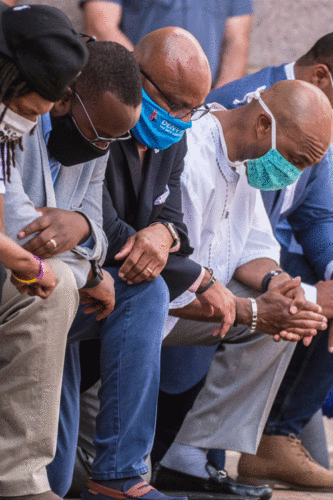
Leading during this unprecedented time can get exhausting, Robinson says. He’s working long hours, leading intense discussions, making incredibly difficult decisions—and dealing with his own emotions and reactions to the situation.
“I’m a black man who has experienced discrimination and inappropriate behavior by police in my lifetime,” he says. “My prayers are with the family of George Floyd. I am outraged by the actions that caused his death and stand in solidarity with those demanding justice.”
He leans on his faith and spirituality to get him through. And he believes in the power of leveraging past experiences to create a better future.
“My life experiences, including those I obtained from Colorado Academy, play a role in helping me understand how to deal with these things,” he says. “It’s the combination of life experience and education that has gotten me to where I am and is carrying me through this hard time.”
Abolishing racial discrimination for our children
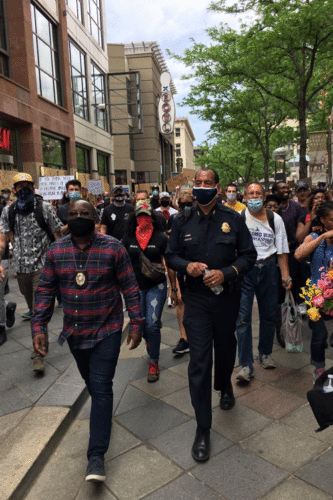
Robinson calls the current moment—with building momentum for police reform, national conversations on white privilege, and Black Lives Matter protests in all 50 states and other countries—an “absolute turning point.”
“This isn’t like any other time in history,” he says. “We have the opportunity right now to modify the foundational fibers of this country that prevented my ancestors, parents, and grandparents from having equal rights and equal treatment. I want to see the racial discrimination and inequities that I’ve seen in my lifetime depleted or eliminated for my daughter.”
This spring, Robinson met with CA Seniors to discuss career paths. He says Colorado Academy has a keen opportunity to play a role and align its values with its operations. In order for the school’s populace to be diversified and reflect its values, he believes, there must be robust recruitment of people of color to both the student body and the faculty.
“I’m sure that CA is working diligently to continue the progress they were making when I was there,” he says. “I hope this moment in time will not be in vain. I hope that places like CA can lead by example, in a way that will foster conversations about race and help make systematic changes across the board.”
